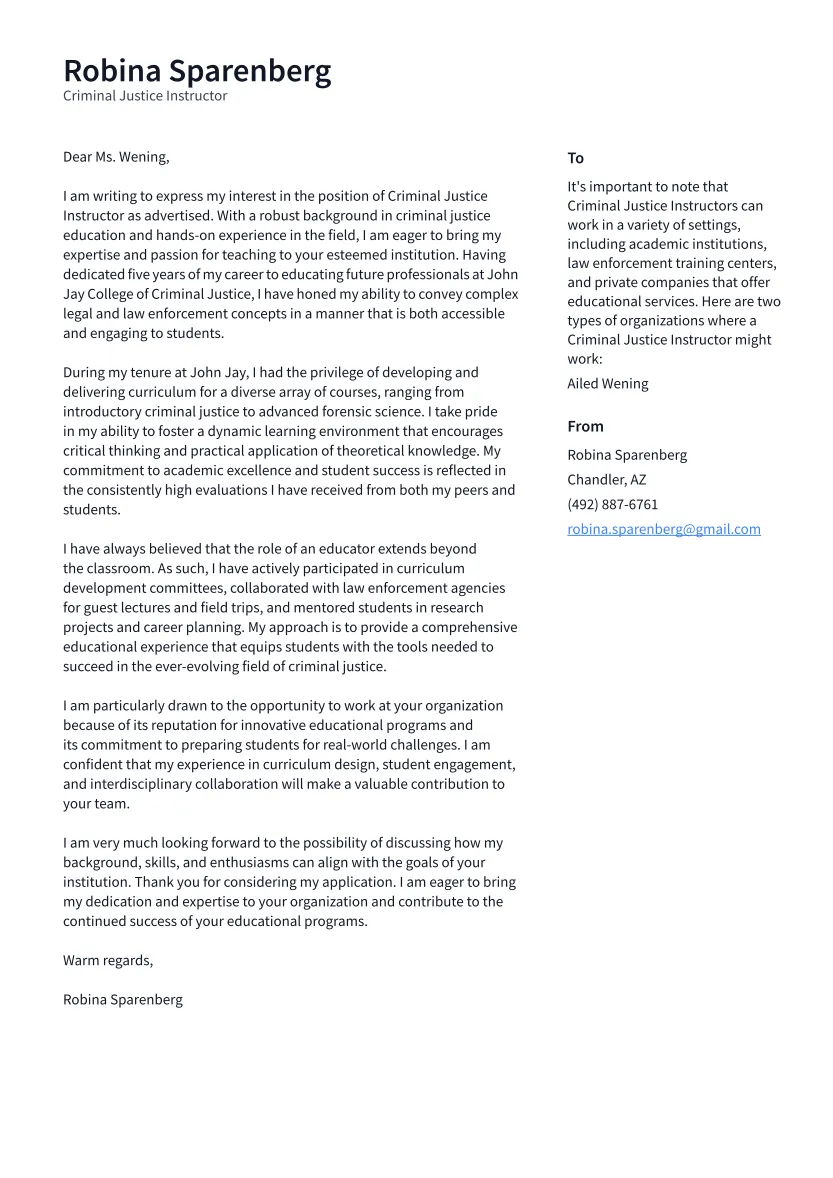Understand the Purpose of a Cover Letter
A criminal justice cover letter serves as your introduction to a potential employer, offering a crucial opportunity to showcase your qualifications, experience, and enthusiasm for a specific role. Unlike a resume, which provides a factual overview of your background, a cover letter allows you to personalize your application, demonstrating your personality and explaining why you are the ideal candidate. It’s your chance to connect your skills and experiences directly to the job requirements and express your genuine interest in the organization. Therefore, a well-crafted cover letter can significantly increase your chances of securing an interview by making a strong first impression.
What to Include in Your Criminal Justice Cover Letter
A comprehensive criminal justice cover letter should include several key components to effectively communicate your suitability for the position. Each section plays a vital role in presenting a persuasive case for your candidacy. From your contact information to the closing paragraph, every element should be carefully crafted to reflect professionalism, attention to detail, and a clear understanding of the job requirements. A well-structured cover letter not only provides the necessary information but also showcases your writing skills, which are essential in the criminal justice field.
Your Contact Information and the Date
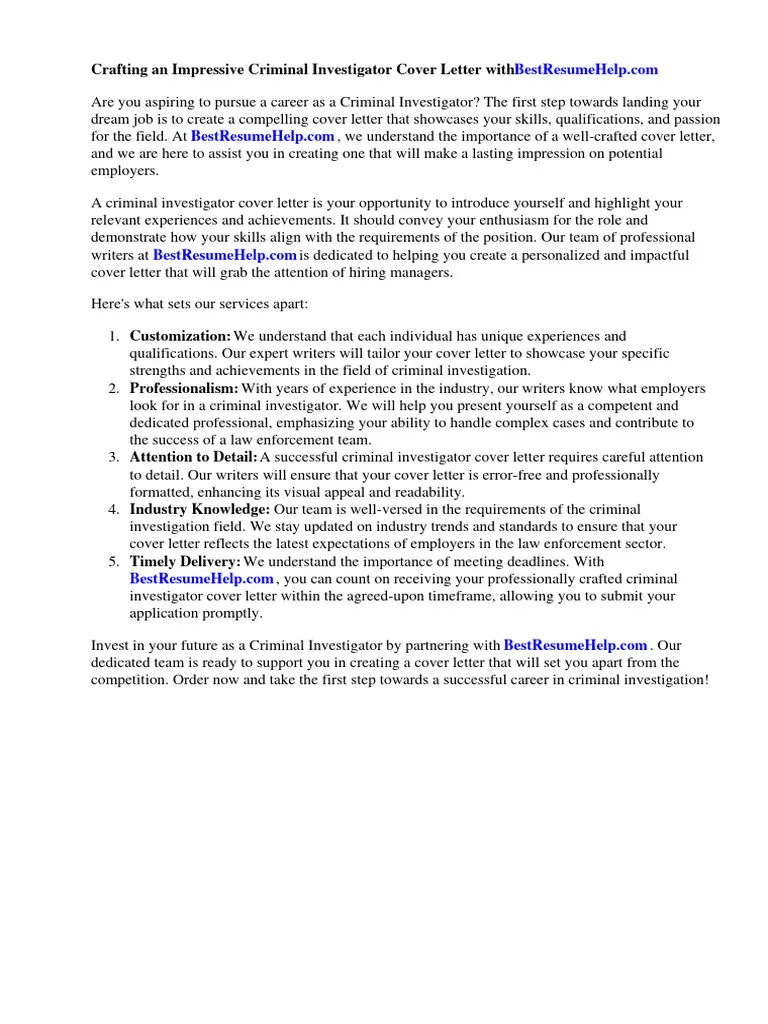
At the top of your cover letter, include your full name, address, phone number, and professional email address. This ensures that the hiring manager can easily contact you. Following this, include the date you are submitting the cover letter. Ensure your email address sounds professional; avoid using nicknames or informal language. This simple yet essential information sets the foundation for your application and ensures ease of communication.
The Hiring Manager’s Contact Information
Whenever possible, address your cover letter to a specific person, such as the hiring manager or the department head. Research the company’s website, LinkedIn, or other resources to find the correct name and title. If you can’t find a specific name, use a professional salutation like “Dear Hiring Manager.” This personalization shows that you have taken the time to research the organization and are genuinely interested in the opportunity. Addressing the letter to a specific individual makes your application stand out.
A Professional and Engaging Salutation
Start your cover letter with a professional and engaging salutation. “Dear Mr./Ms./Mx. [Last Name]” is a standard approach, especially when you know the hiring manager’s name. If you don’t know the name, “Dear Hiring Manager” or “Dear [Department Name] Hiring Team” are acceptable alternatives. The salutation sets the tone for the entire letter, so make sure it is respectful and reflects your professional demeanor. Avoid informal greetings, and ensure proper grammar and titles.
Crafting a Compelling Opening Paragraph
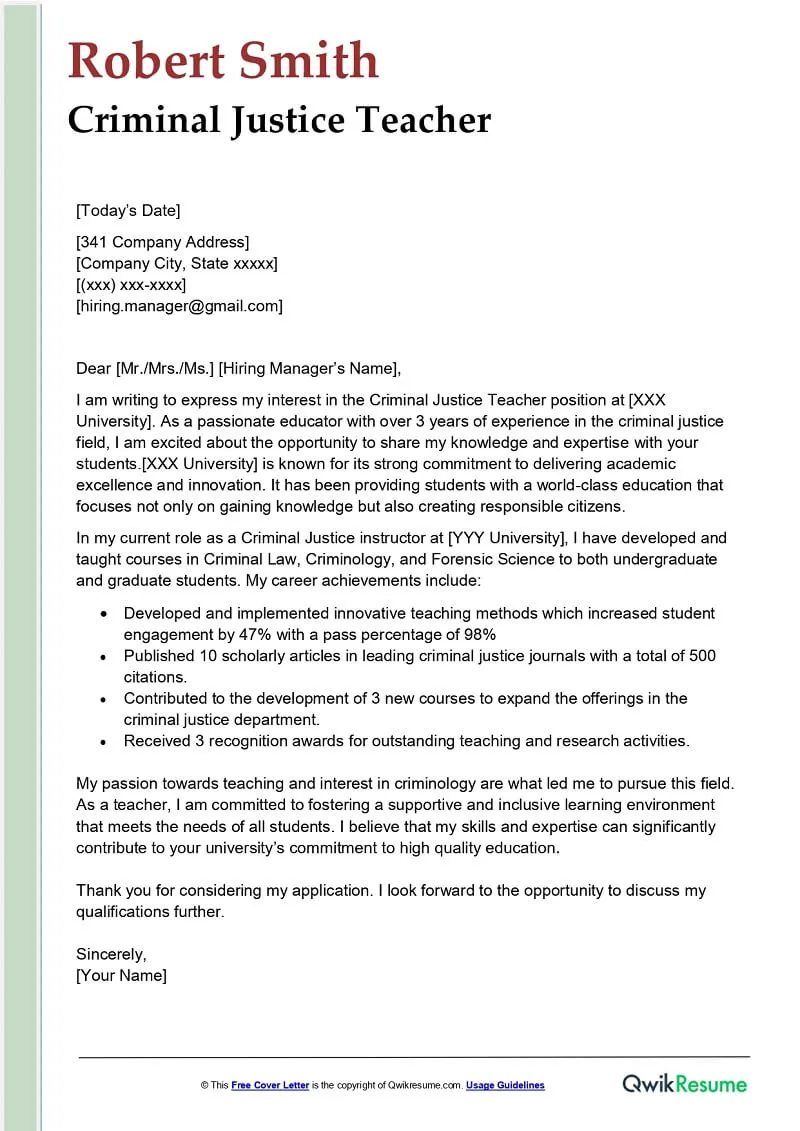
Your opening paragraph should immediately capture the reader’s attention and clearly state the position you are applying for and where you saw the job posting. Briefly mention your most relevant qualifications and express your enthusiasm for the opportunity. For instance, you might mention a particular skill or experience that aligns perfectly with the job description. The opening paragraph should give the reader a reason to continue reading and learn more about you.
Highlighting Relevant Skills and Experience
This section is the heart of your cover letter, where you connect your skills and experience to the job requirements. Focus on the qualifications most relevant to the position, using specific examples to demonstrate your abilities. This section should be tailored to each job, emphasizing the skills and experiences most valuable to the employer. Be clear, concise, and use action verbs to describe your accomplishments. This shows how you have utilized your skills in practical situations within the criminal justice field.
Showcasing Accomplishments
Instead of just listing your job duties, highlight your accomplishments. Describe specific achievements and results you have obtained in previous roles. For example, did you successfully manage a high-profile case? Did you improve efficiency in a specific area? Use concrete examples to illustrate your value. Accomplishments provide tangible evidence of your capabilities and demonstrate your potential to contribute to the employer’s success. This will set you apart from other applicants.
Quantifying Your Achievements
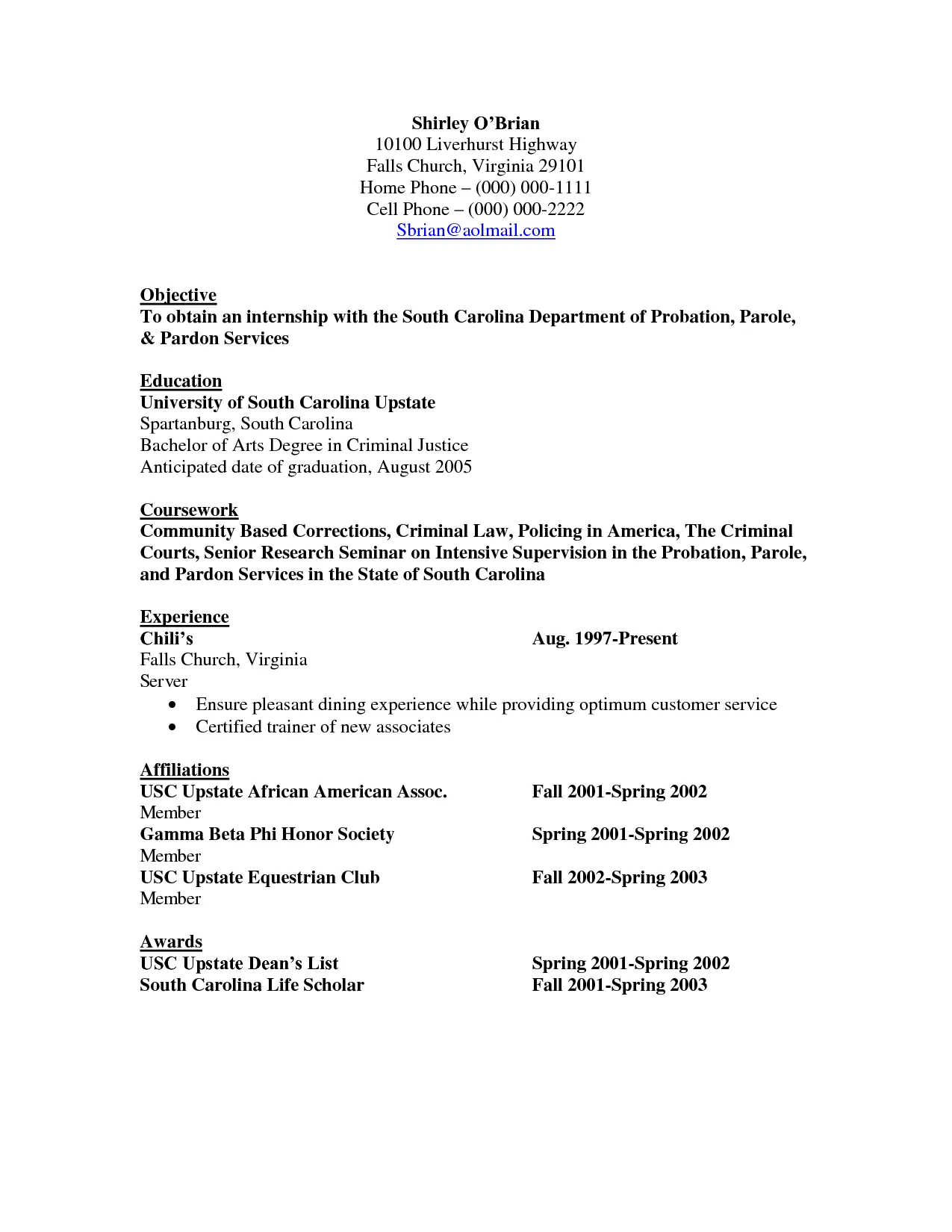
Whenever possible, quantify your achievements with numbers and data. For instance, instead of saying “Improved case management,” say “Improved case management efficiency by 15%.” Quantifiable results make your accomplishments more compelling and provide concrete evidence of your impact. Metrics such as percentages, numbers of cases handled, or improvements in any area add credibility to your claims. This demonstrates to the employer that you are results-oriented and able to measure the impact of your work.
Tailoring to the Specific Job Description
Carefully review the job description and tailor your cover letter to match the specific requirements and keywords mentioned. Highlight the skills and experiences that directly align with the job’s needs. If the description mentions specific software, certifications, or responsibilities, be sure to address these points. This demonstrates that you understand the role and are a good fit for the organization. Customize each cover letter to show your attention to detail and your genuine interest in the particular position.
Demonstrating Your Knowledge of the Field
Show your knowledge and understanding of the criminal justice field. Discuss current trends, relevant laws, or any specific area of expertise. This demonstrates your genuine interest in the field and your commitment to staying informed. Mentioning relevant professional organizations, certifications, or training you have completed further strengthens your application. This will highlight to the employer your dedication to the profession.
Writing a Strong Closing Paragraph
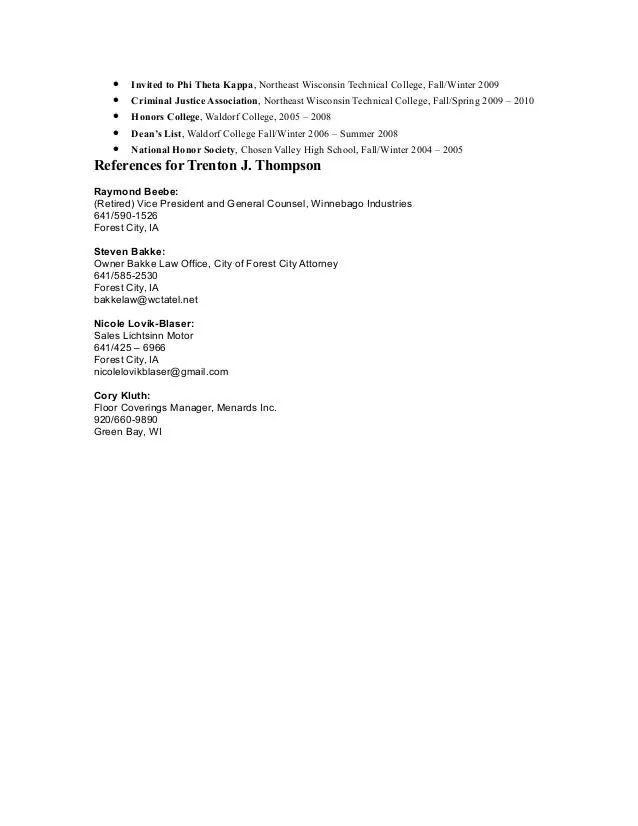
The closing paragraph should leave a lasting positive impression. Thank the hiring manager for their time and consideration, reiterate your interest in the position, and express your availability for an interview. This final paragraph is a chance to summarize your key strengths and re-emphasize why you are the ideal candidate. A well-crafted closing paragraph can influence the decision of the hiring manager to call you for an interview.
Expressing Enthusiasm and Gratitude
Express your enthusiasm for the opportunity and thank the hiring manager for their time and consideration. Show that you are genuinely excited about the prospect of working for the organization and contribute to their mission. A simple expression of gratitude shows respect and professionalism. This positive closing will make the hiring manager remember you.
Suggesting a Follow-Up
Conclude your cover letter by suggesting a follow-up. This can be a polite statement like, “I look forward to hearing from you soon” or “I am available for an interview at your earliest convenience.” Providing your contact information again ensures that the hiring manager can easily get in touch with you. Avoid being overly assertive, but make it clear that you are eager to discuss your qualifications further.
Proofreading and Formatting Your Cover Letter
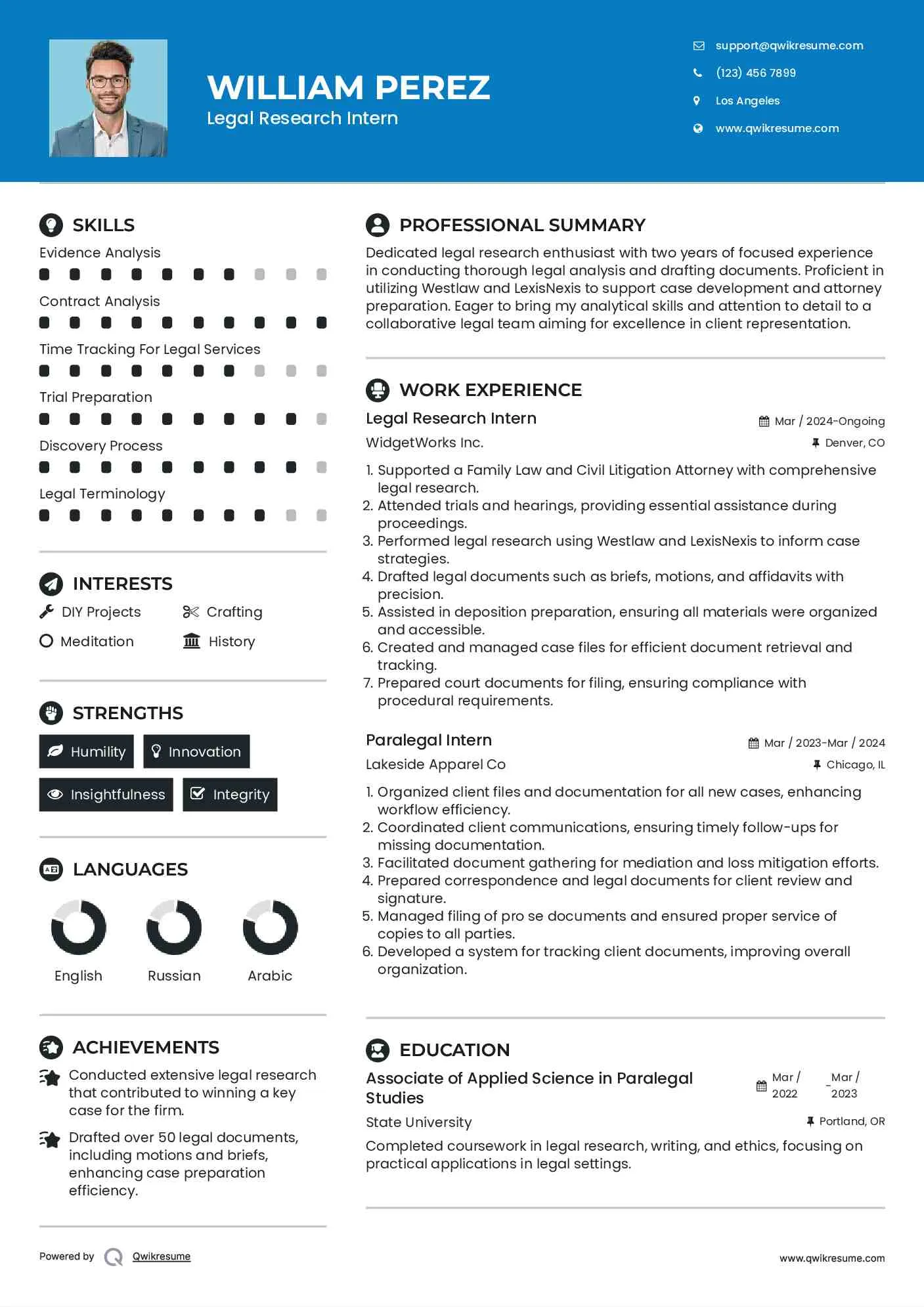
Before submitting your cover letter, it is crucial to carefully proofread it for any errors in grammar, spelling, and punctuation. A polished cover letter demonstrates your attention to detail, which is essential in the criminal justice field. Read it aloud, use spell-check, and consider asking a friend or family member to review it as well. A mistake-free cover letter reflects professionalism and shows that you take your job application seriously.
Formatting Your Cover Letter
Use a professional and easy-to-read font, such as Times New Roman, Arial, or Calibri, with a font size between 10 and 12 points. Ensure consistent spacing and alignment. Keep your cover letter to one page. Use clear headings and subheadings to organize the information. A well-formatted cover letter is easy to read and shows that you are organized and professional. This is important because first impressions matter, and a neat format shows you are organized and thoughtful.
Proofreading for Errors
Proofread your cover letter multiple times, looking for any grammatical errors, typos, or inconsistencies. Check the names of people and organizations to make sure you have them correct. Consider using a grammar checker to catch any mistakes. Errors in a cover letter can reflect poorly on your attention to detail and can lead the hiring manager to believe you are not as qualified as you represent yourself to be. Carefully proofreading before submission ensures that your application makes the best impression possible.
